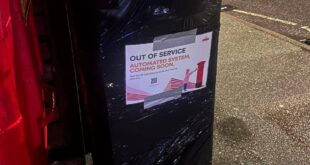Moderna expects to rake in $18.4bn (£13bn) of sales from its coronavirus vaccine this year, marking a huge turnaround in the fortunes of the US biotech firm.
The expected revenue is far higher than the $11.2bn predicted by analysts, and exceeds the $15bn in sales that its US rival Pfizer expects for the Covid-19 vaccine that it developed with Germany’s BioNTech.
Massachusetts-based Moderna, founded 11 years ago, said the final number could even exceed the $18.4bn its current deals would bring in, as it was in discussions with several governments about further orders. It is also in talks with Covax, a mechanism created to distribute Covid vaccine doses fairly around the world.
The vast sales will push Moderna into profit for the first time and move the company into a bigger league. The UK’s AstraZeneca had sales of $25bn last year, but while AZ employs 70,000 staff, Moderna had just 830 in 2019.
Moderna charges $30 for the required two shots in the US and $36 in the EU. By comparison, the Pfizer/BioNTech vaccine costs $39 for two doses in the US and just under $30 in the EU. The AstraZeneca vaccine ranges from $4.30 to $10 for two doses, and the company had pledged not to profit from the vaccine until the pandemic is declared over.
The Moderna vaccine, similar to the Pfizer/BioNTech version, is based on re-engineering mRNA – the molecule that sends genetic instructions from DNA to a cell’s protein-making machinery – and it has produced equally strong results in late-stage clinical trials, with an efficacy of 94%.
Moderna is the first company to have developed a new vaccine version designed to provide better protection against the highly contagious coronavirus variant identified in South Africa, and it shipped it to the US National Institutes of Health this week for testing as a booster shot.
Stéphane Bancel, the chief executive of Moderna, said 2021 would be “an inflection year” for the business. The 48-year-old Frenchman has been at the helm of Moderna since 2011.
The company floated in 2018 but the share price languished around the flotation price until coronavirus emerged. In the last 12 months, the price has soared from around $19 to $155, giving the company a value of around $60bn. That surge has turned Bancel, who has a 9% stake in Moderna, into a paper billionaire worth more than $5bn.
The firm opened subsidiaries in eight countries last year and plans to add Japan, South Korea and Australia in 2021. “We will advance our mission of delivering on the promise of mRNA science to create a new generation of transformative medicines for patients,” Bancel said. “This is just the beginning.”
Moderna was founded in 2010 by a stem cell biologist, Derrick Rossi, and two financial backers, with the idea that mRNA could be re-engineered to develop drugs and vaccines. It has 23 other mRNA drugs and vaccines in its portfolio, such as vaccines for the viruses Zika, HIV and Nipah. But with the exception of the Covid-19 vaccine, none of its products have yet made it to market.
The UK has ordered 17m shots of the Moderna vaccine, the first of which are expected to arrive in April. The EU has already received some Moderna jabs. Last week the EU ordered 150m additional doses from Moderna, for delivery from the summer, bringing its total order this year to 310m doses. It has the option to purchase a further 150m doses for delivery next year.
Two weeks ago the US government purchased an additional 100m doses of the Moderna vaccine, taking its total to 300m doses. Moderna remains on track to deliver the first 100m doses by March and the second order of 100m doses in May. Japan has purchased 50m doses.
Source link



